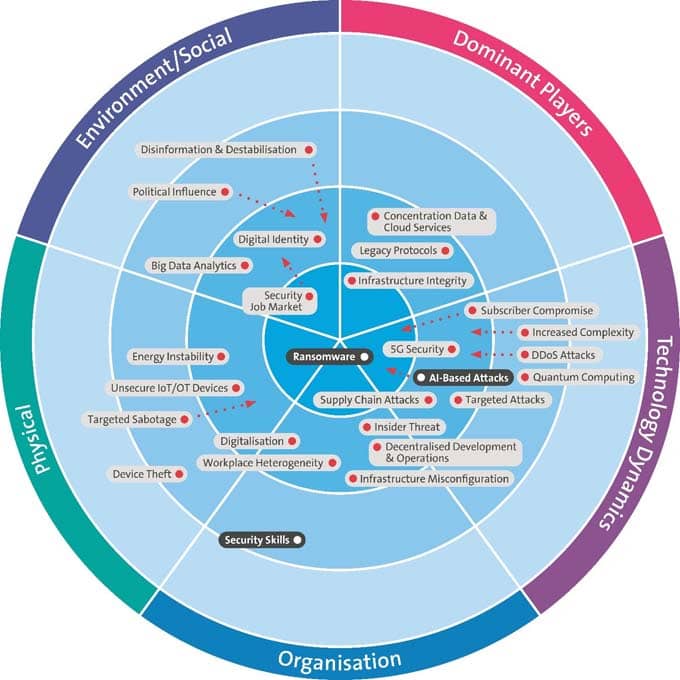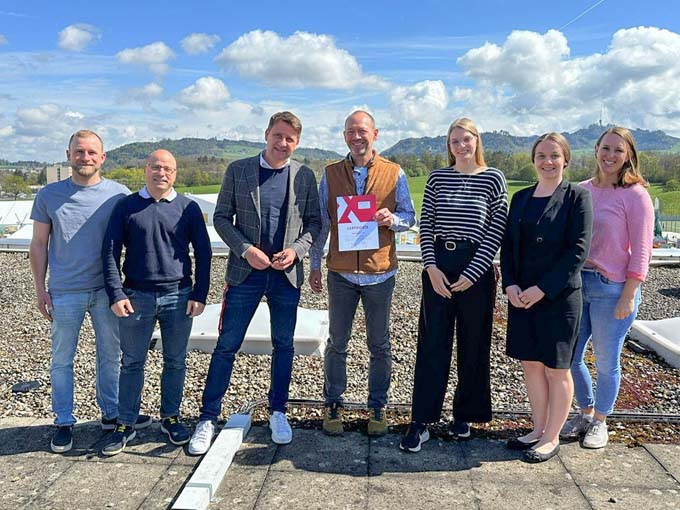Banking crisis continues - economy weakens further
Dun & Bradstreet's latest Country Risk Global Outlook sees the financial system remaining vulnerable to confidence crises following another regional bank collapse. In addition, there are signs of an economic slowdown in almost all economies. In the USA, an end to the cycle of interest rate hikes is in sight.

The crisis of confidence in the financial sector continues. Following Silicon Valley Bank and Signature Bank, another regional bank, First Republic Bank, had to be rescued from collapse in the USA at the beginning of May - in this case through the intervention of JP Morgan. The collapse of First Republic Bank did not come as a surprise. In the April issue of the Global Outlook of the credit agency Dun & Bradstreet, the authors already pointed out the problems and the massive outflow of deposits at the Californian institution. They believe it is possible that other regional U.S. institutions with similar balance sheet and business profiles could become distressed. While it is reassuring that the big U.S. banks with strong earnings are willing to act as a protective haven for struggling smaller institutions, they add. However, deteriorating credit conditions in the U.S. could prove to be a problem, partly because of the threat of increased loan defaults as a result of the slowing U.S. economy. The risk of further dominoes falling and the banking sector being rocked by renewed panic attacks therefore persists, according to Dun & Bradstreet's assessment.
Economic slowdown and interest rate freeze in the USA
Interesting indications of global economic development were provided by the gross domestic product (GDP) data for the first quarter of 2023, which point to an economic slowdown in almost all economies. The report continues to classify the outlook for North America as "deteriorating." For example, GDP growth in the U.S. fell short of expectations in the first three months of the current year at an annualized 1.1 percent. The housing market in particular is prone to weakness. In addition, the sword of Damocles of insolvency hangs over the world's largest economy if Congress does not agree to suspend the debt ceiling. This day, known in US parlance as the "X date," could come sooner than expected.
Accordingly, the risk of renewed bank failures and a harsher credit environment persists in the USA. This aspect has prompted the Fed to stop the cycle of interest rate hikes earlier than inflation dynamics would probably justify. All in all, downside risks to the U.S. economy have increased, although a full-blown recession is still not in line with our baseline scenario.
Rising core inflation in Europe
According to Eurostat, economic growth in the European Union amounted to 0.3 percent in the first quarter of 2023 and to 0.1 percent in the euro zone. Although some leading indicators give cause for moderate optimism, European economies continue to face challenges, concludes the Dun & Bradstreet report. It is true that the overall inflation rate in many Western European countries is on the retreat. However, this is no reason to sound the all-clear, as core inflation (i.e. inflation excluding energy, food, alcohol and tobacco) has continued to rise recently. As a result, the European Central Bank (ECB) is likely to raise key interest rates even further before probably taking a break in the course of the second half of the year. The rising number of insolvencies is evidence of the increased credit risk in the European economies. They increased by 27 percent in the fourth quarter of 2022 compared with the previous quarter.
Asia: China benefits from catch-up effects
Furthermore, the latest Country Risk Global Outlook considers the economic outlook for the Asia-Pacific region to be "stable", although economic growth in the current year is likely to lag behind that of the previous year. The exceptions are mainland China, the Hong Kong Special Administrative Region and Thailand, according to the report. China is benefiting from catch-up effects following the end of the country's zero-covid policy and will probably achieve its growth target of around 5 percent this year, according to the authors. The Asian economies, which are closely intertwined with the Chinese economy, would benefit from this in the short term, while those countries in the region that export heavily to the European and US markets would see a decline in foreign demand. "On balance, we expect China's 'growth dividend' to have only limited positive effects for the rest of the world after the reopening," the report concludes.
Commodities: Supply shortage looms for oil
The oil price for Brent crude recently settled at around 80 US dollars per barrel. As the year progresses, however, supply shortages could cause prices to rise to as much as 100 US dollars. Firstly, because the EU embargo on refined Russian oil products has come into force. Secondly, because the production cut decided by OPEC probably cannot be fully compensated by non-OPEC countries due to their limited capacity reserves.
Source and further information: Dun & Bradstreet
This article originally appeared on m-q.ch - https://www.m-q.ch/de/bankenkrise-geht-weiter-wirtschaft-schwaecht-sich-weiter-ab/



























 Many industries and companies complain that customers are becoming less and less loyal. The price is a little lower, the offer a little more tempting - and loyalty is gone. In today's fast-paced world, is it still possible to build lasting relationships with customers? What does it take for people to voluntarily commit to a company?
Many industries and companies complain that customers are becoming less and less loyal. The price is a little lower, the offer a little more tempting - and loyalty is gone. In today's fast-paced world, is it still possible to build lasting relationships with customers? What does it take for people to voluntarily commit to a company?